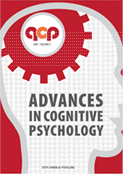Motor imagery is generally thought to share common mechanisms with motor execution. In the present study, we examined to what extent learning a fine motor skill by motor imagery may substitute physical practice. Learning effects were assessed by manipulating the proportion of motor execution and motor imagery trials. Additionally, learning effects were compared between participants with an explicit motor imagery instruction and a control group. A Go/NoGo discrete sequence production (DSP) task was employed, wherein a five-stimulus sequence presented on each trial indicated the required sequence of finger movements after a Go signal. In the case of a NoGo signal, participants either had to imagine carrying out the response sequence (the motor imagery group), or the response sequence had to be withheld (the control group). Two practice days were followed by a final test day on which all sequences had to be executed. Learning effects were assessed by computing response times (RTs) and the percentages of correct responses (PCs). The electroencephalogram (EEG ) was additionally measured on this test day to examine whether motor preparation and the involvement of visual short term memory (VST M) depended on the amount of physical/mental practice. Accuracy data indicated strong learning effects. However, a substantial amount of physical practice was required to reach an optimal speed. EEG results suggest the involvement of VST M for sequences that had less or no physical practice in both groups. The absence of differences between the motor imagery and the control group underlines the possibility that motor preparation may actually resemble motor imagery.

